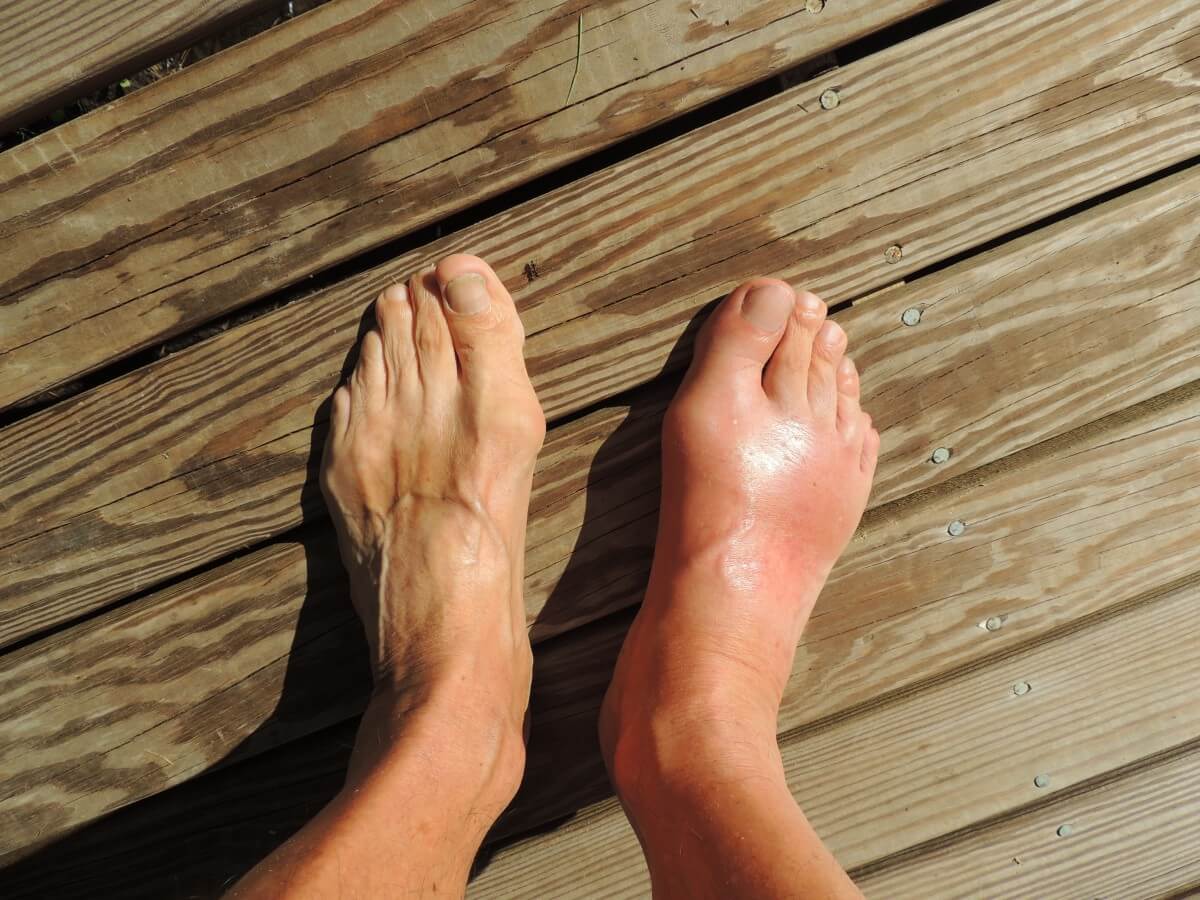 A collaborative partner of FitNet
A collaborative partner of FitNet A collaborative partner of FitNet
A collaborative partner of FitNetPlease remember, lifestyle modifications are very important to lower the uric acid level, gout and gout attacks.
Gout is a type of arthritis with incidence in male is more than female (10:1). It is caused by high level of uric acid in blood. Uric acid is the end product of protein/ purines metabolism.
Blood uric acid levels are increased if kidneys cannot handle excess uric acid load or if it is not able to remove it efficiently.

If levels of uric acid are high for prolonged periods, needle-like crystals are formed in body tissues resulting in swollen, painful joints.
Diet plays an important role in both causing gout and reducing further painful attacks of gout. Studies have shown that vegetarian diets that are high in purines are much less likely to lead to gout. Eating purines rich diet can result in a five-fold increase in gout attacks if you suffering from gout.
Protein is very important part of our diet. it is used for growth and repair, as well as an energy source. It also control satiety as well as blood sugar levels
Generally you need about 1 g of protein per kg of body weight (60 kg man only requires 60 g of protein daily). In certain condition protein intake may need to be increase or decrease. So it is always advisable to consult your doctor for any modification.
1. With some drugs like Diuretics, Niacin, or Vitamin B-3, Immune-suppressing drugs etc
2. Alcohol consumption
3. Genetic predisposition
4. Hypothyroidism
5. Obesity
6. Skin disease like Psoriasis
7. Purine-rich diet – please read attached table
8. Renal disorder
9. Tumor lysis syndrome etc
1. raised cholesterol
2. raised triglycerides
3. high blood pressure
4. poor glucose tolerance
5. Obesity
6. Probability of type 2 diabetes, metabolic syndrome and kidney disease later on.
Lifestyle modifications are very important to lower the uric acid level, gout and gout attacks.
It involves adopting long-term habits, typically of food habit or physical activity, maintaining the new behaviour for months or years. Lifestyle modification can be used to treat a range of diseases, including obesity.
Excess weight increases insulin resistance. In obese patients, the body can’t handle insulin properly to remove sugar from the blood. High Insulin resistance promotes high uric acid formation. So it increases the risk of gout and gout attacks. Weight reduction is known to reduce insulin resistance and lower uric acid levels. Trying to lose weight very fast by eating very little is not safe. Intact it is important to avoid any type of crash dieting, as going without food for long periods and rapid loss of weight can increase uric acid levels and trigger painful gout attacks.
Regular exercise is another way to reduce high uric acid level thus it reduce gout and gout attacks.
Drinking plenty of water can help in reducing the risk of gout attacks as adequate water intake removes excess uric acid from the blood, flushing it out in the urine. If you exercise a lot, then it’s even more important to stay hydrated, because you may lose a lot of water through sweat.
Alcohol is a known trigger factor for gout attacks as body try to remove alcohol first and uric acid accumulate as crystals
Studies have shown that men whose diet is higher in vitamin C are less likely to develop gout. Also, taking additional vitamin C as a dietary supplement (500 to 1500 mg/day) can reduce blood uric acid levels.
Foods and drinks sweetened with fructose (labelled as glucose-fructose syrup or corn syrup), as well as sweetened soft drinks, increase the risk of developing gout, as well as the gout attacks. Sweetened soft drinks are a poor substitute for fruit, as they do not contain any fibre, and they are ‘empty – calories’.


Facebook Comments